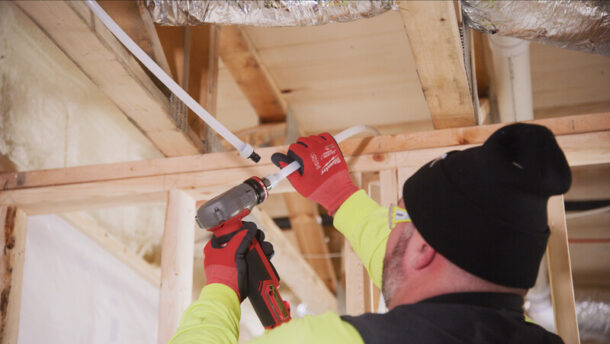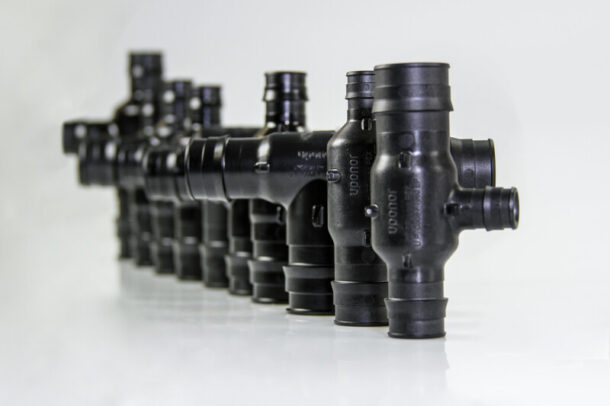If you’ve heard all PEX F1960 expansion fittings are the same because they all conform to the same ASTM fitting standard, it’s important to understand there are real differences that can affect your business.
In truth, not all fittings conforming to the ASTM F1960 standard are the same. Manufacturers and suppliers that claim their fittings are compliant to ASTM F1960 feel that, in their opinion, they meet the standard. However, there is no third-party agency to confirm that compliance.

Certification Difference
Uponor ProPEX® fittings are a highly engineered product certified by third-party agencies — NSF in the U.S. and the Canadian Standards Association (CSA) in Canada — to ensure the raw materials, manufacturing process, and resulting product accurately meet the ASTM F1960 standard.
In fact, the companies that mold ProPEX EP fittings are partners that are integrated into the codes, helping ensure the highest-quality product. ProPEX fittings also undergo internal quality testing that extends beyond the ASTM F1960 standard requirements to provide customers with the strongest value available on the market.
Contractors need to be aware there is a difference and to “Ask for Uponor” at their local distribution centers to ensure they’re getting what they’re paying for with Uponor ProPEX fittings. The differences are far beyond just the brand name.
Uponor testing on generic, low-quality F1960 fittings has exposed various manufacturing design and quality inconsistencies. Some fittings can’t even pass the ASTM F1960 standard requirements! This is putting projects at considerable risk for failures and potentially voids the associated system warranties.

Identifying ProPEX
So, how can you tell if you have a real Uponor ProPEX fitting? The easiest way is to look for the Uponor logo. Other indicators include thicker tube stops and thicker sealing barbs. The thin tube stops on the generic, low-quality F1960 fittings are especially problematic as the expanded PEX pipe can extend past the stops and cause leaks.
If you are purchasing fittings that are not in Uponor packaging and are loose in a bin, be sure to take a close look at each part to ensure you’re getting Uponor ProPEX and not a generic product.
To learn more about the quality and 25-year warranty that accompanies the Uponor system as well as the risks of low-quality F1960 fittings, visit uponor.com/askforuponor.




Join the conversation: